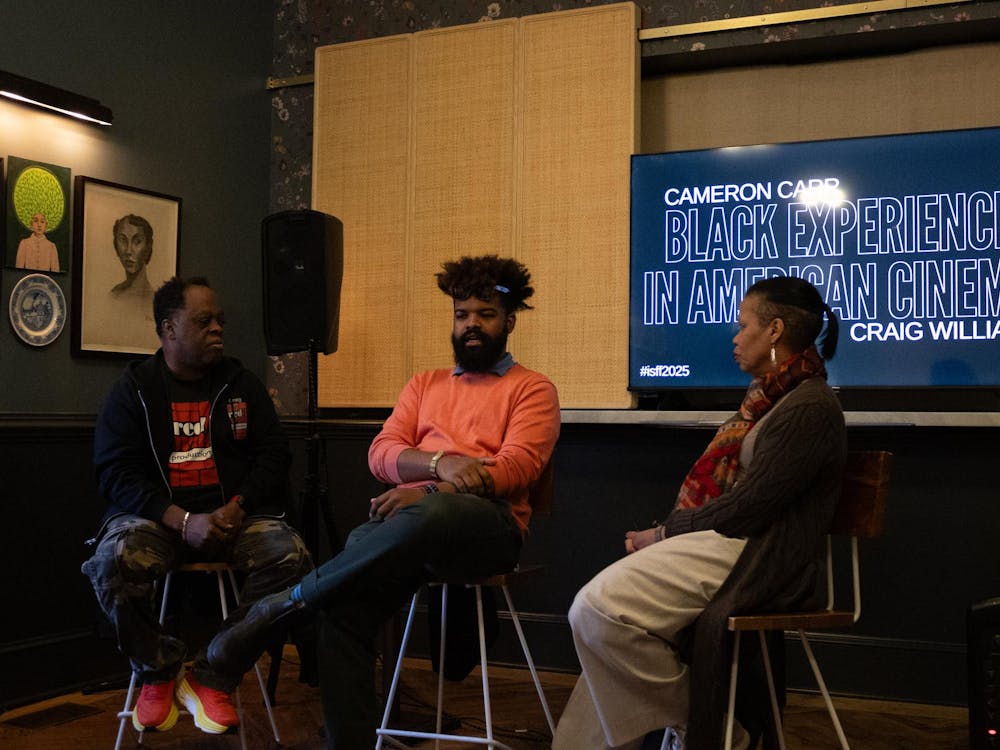Being 14 was not cool. Entering high school, I needed to be socialized — and quick. I was in a phase where I thought my post-pubescent mustache looked kind of sick, and my emotional support and social mainstays consisted of online Minecraft friends from Ohio I’d never actually met and my bearded dragon. Luckily for me, I shaved, and I was saved. I found life-long friends in the most unlikely of places — a church youth group. And no, it wasn’t Young Life, good lord. I can afford my current pseudo-charisma to a quiet Baptist church in my hometown and the friends who invited me into their world.
I wasn’t raised explicitly religiously, nor did I slot entirely comfortably into the idea or the practice of organized religion. However, I was always in awe of the devotion that surrounded me in these spaces — a faith placed in the eternally unknown, a faith placed solely in feeling, in breath. A faith inextricable from existence. Up to that point, I had great faith in friends and family, but I couldn’t imagine having faith in something so uncertain, so invisible.
But then I met the love of my life. I fell in love for the first time and the last time when I was 20 years old. Far from my New York Giants-colored braces, even farther from a fully-realized adulthood. Before I met her, the future’s invisibility terrified me — looking toward its shroud of cold, gray mist. Now, that same invisibility thrills me, because it is an invisibility shared. Sure, I don’t know what the cold, gray mist holds, but it’s ours. Even the prospect of getting a Roth IRA — whatever that is — kinda sorta thrills me. Maybe. But now I’m starting to better understand that faith toward the unseen and the uncertain as a new devout patron of the religion of love. And with no doubt in my mind, there is no piece of art that better reflects this religion of love than Stevie Wonder’s “As,” the greatest musical accomplishment from the greatest musician-prophet of our time. A psalm of everlasting loyalty.
In 1971, shortly after his 21st birthday, Stevie Wonder negotiated a new contract with his label, Motown, pinning Berry Gordy, the grand oracle of modern popular music, into affording Wonder “complete creative control” over his records. Less than a year later, Wonder released “Music of My Mind,” marking the beginning of a five-album-long instant-classic run. By 1976, Wonder had eight Grammys, a marriage and subsequent divorce with Syreeta Wright and a near-death experience in his wake. “Songs in the Key of Life” anchored the most legendary string of albums ever produced — this is Stevie Wonder, celestial superstar, at his highest ground.
“As” is the hymn of hymns, the love song of love songs, the master of masterpieces. Choke-full of rhapsodic dedications to love’s eternal life, “As” brims with volcanic incantations, disco-gospel tempos and unequivocal charm. The song begins with Wonder’s central assertion that his love will last “always.” The subsequent refrains dip into some sentimentally surreal impossibilities of the world — Wonder claiming his love will last “until the dolphin flies and parrots live at sea,” “until the day is night and night becomes the day, “until the trees and seas just up and fly away.” Up to this point, the song is slowly building up in momentum, but what comes next sets off an astral cascade of kinetic ascension.
The great part about being a once-in-a-lifetime musical genius is that you can make mere humming sound like the second coming of Christ. About a minute-long metaphysical instrumental swirl of guitar, drum fills, a little tambourine and — of course — the booming hums of our savior and lord sets up a behind-the-back alley-oop to Wonder at peak priesthood. Wonder vehemently, bullishly wails a pastoral tirade, singing, “Change your words into truths and then change that truth into love / And maybe our children's grandchildren / And their great-great grandchildren will tell,” calling for the emanation of the language of love for the betterment of our future.
The song closes out with a choir of that same refrain of universal impossibilities — a personal favorite being “[I’ll be loving you] until the day that eight times eight times eight is four.” By the time the seven-minute runtime is up, I’d put my Roth IRA on listeners worldwide levitating out of their seats, ready to take some yet unknown action — their souls taking a quick breather outside of their bodies. I’m comfortably making that bet from experience — after each listen, I feel closer to divine understanding, enlightenment and empowerment. Just as those who leave their place of worship feel blessed by their god, I feel blessed — sanctified — by the genius of Stevland Hardaway Morris.
“As” has been a favorite song of mine for years now, but after meeting my “always,” my heart stomps just a little louder after every listen. Once I got it, I got it. “As” will always be my personal soundtrack of the raft ride through the waters of love, floating forever toward the future. Sometimes the water will be bumpy, sometimes still, sometimes quick, sometimes idle, but I’ll never break eye contact with the sky above, changing from day to night. Through thick and thin, I will always trust the waters, so what’s the use in craning my neck toward the mist ahead? I fell in love for the first time and the last time when I was 20 years old, and the sky looks nice today.
Keep up with all of Stefan's best songs of all time with our official Tied for First playlist.







